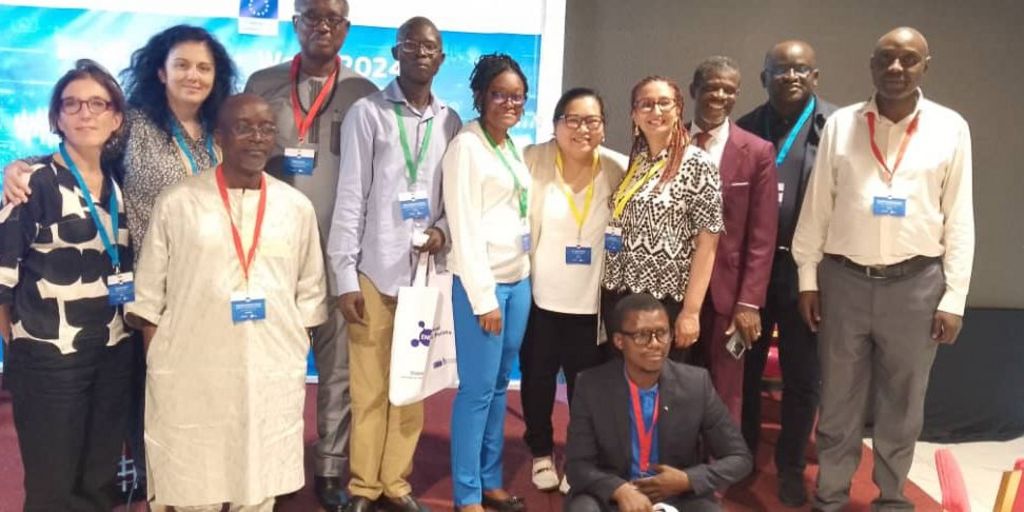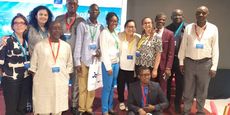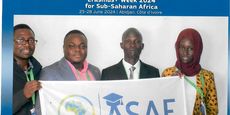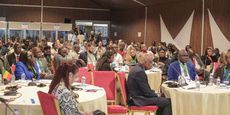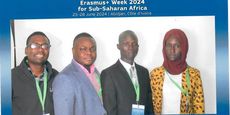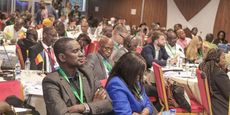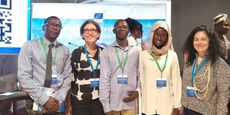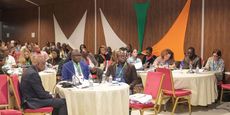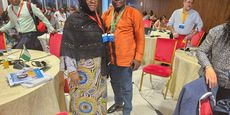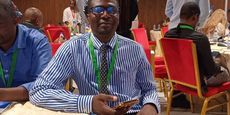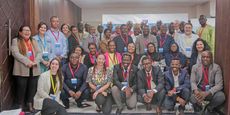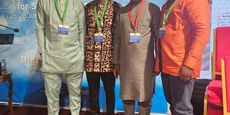News
What happened?
ASAF takes part in Erasmus+ Regional Week for Sub-Saharan Africa
From the 26th to 27th of June 2024, Alexandre Zoumman (Vice-President in charge of regional cooperation and integration) and the regional coordinators for South, Central and West Africa took part in the Regional Erasmus+ Week 2024 for Sub-Saharan Africa. This event, dedicated to exploring the theme of digital education and promoting global connections, was organised by the Directorate-General for Education, Youth, Sport and Culture (DG EAC) of the European Commission and the European Education and Culture Executive Agency (EACEA).
The ASAF delegation consisted of the Vice-President, Alexandre Zoumman, and the regional coordinators for South Africa (Custody Chikambure), Central Africa (Pierre Djobvouna Guessel) and Western Africa (Marième Wade).
It was an opportunity for them to meet over 30 Erasmus+ National Focal Points (ENFPs) from all over sub-Saharan Africa, and to establish contact for efficient collaboration between them and the ASAF co-ambassadors.
The Erasmus+ 2024 week took place in Abidjan, Ivory Coast, and online via the RingCentral virtual platform. It brought together higher education and vocational training institutions from Sub-Saharan Africa and Europe that are active in the Erasmus+ programme or potentially interested in developing cooperation under this scheme. Participants were joined by those involved in the implementation and promotion of the Erasmus+ programme, such as African ENFPs, Erasmus+ National Agencies, European Union Delegations in Africa, the European Commission and the European Executive Agency for Education and Culture.
The Erasmus+ regional cluster meeting on the 26th and 27th of June supported cooperation between African and European education stakeholders, discussing the experience of Erasmus+ beneficiaries and inspiring potential newcomers. In this context, the event addressed the general theme of the meeting, namely digital in education.
In line with the strategic priorities of the European Action Plan for Digital Education (2021-2027), the Erasmus+ programme can play a key role in supporting citizens of all ages in acquiring the digital skills and competences they need to live, learn, work, exercise their rights, get information, access online services, communicate, consume critically, and create and disseminate digital educational content. The speakers were able to demonstrate this over two days through presentations of innovative educational projects.
Against this backdrop, the event focused on the need to link two of the main objectives of the Global Gateway, namely "Accelerating the digital transition" and "Improving education and training".
More than 100 participants in Abidjan and nearly 300 people online, from all over sub-Saharan Africa and Europe, discussed these issues.
The Erasmus+ networking session that closed the second day of the cluster meeting fostered potential cooperation between stakeholders. Highly interactive exercises enabled participants to exchange ideas in a friendly atmosphere, with a view to forming project partnerships.

